PETA Asia Reveals Horrors in the Global Betta Fish Trade
PETA’s video exposé shows how betta fish suffer before they’re sold to Petco and other pet stores around the world.
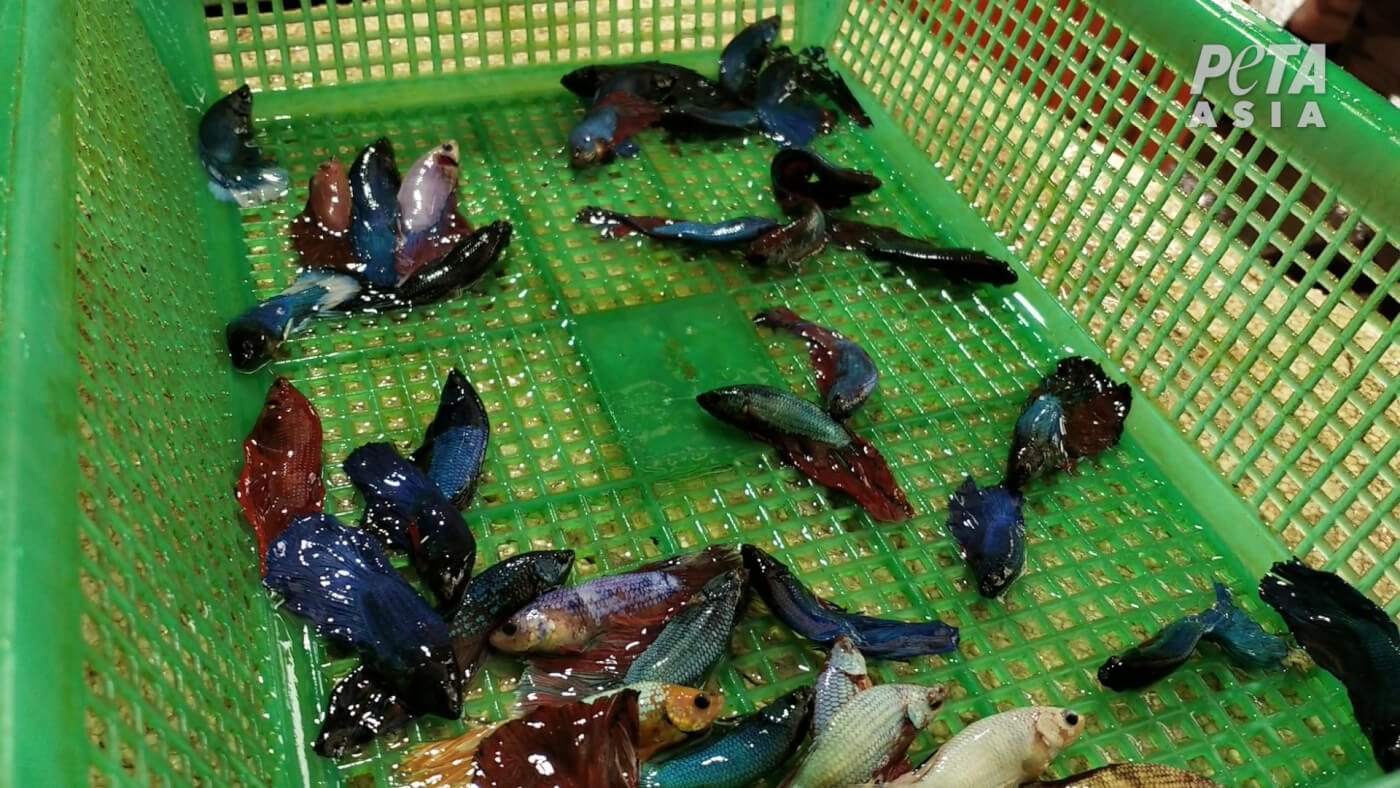
A new PETA video exposé of Thailand’s betta fish industry documents entrenched neglect and cruelty to fish who are bred into a life of deprivation and suffering. The video shows bettas confined to tiny containers in water that barely covers their bodies. The eyewitness—who visited 10 breeding factories and packing operations, including two facilities that supply bettas to Petco —saw numerous dead bettas, many on the floor, likely having suffocated. Bettas were also deliberately left out of the water for long periods of time while workers sorted them for shipping.
A Trail of Dead Fish Behind Every Purchase
Bettas sold in the U.S. primarily come from breeding factories in Southeast Asia, and Thailand is one of the top global exporters. Dead fish were found at every facility visited by PETA Asia’s eyewitness. Many died in breeding tanks, and workers didn’t bother to remove the dead bodies. At a Petco supplier, the eyewitness found a bucket containing both dead and live bettas. Deemed unprofitable because they had damaged tails, a worker admitted that these fish would simply be dumped into a nearby pond or canal. Dumped fish are left to fend for themselves in an unfamiliar habitat.
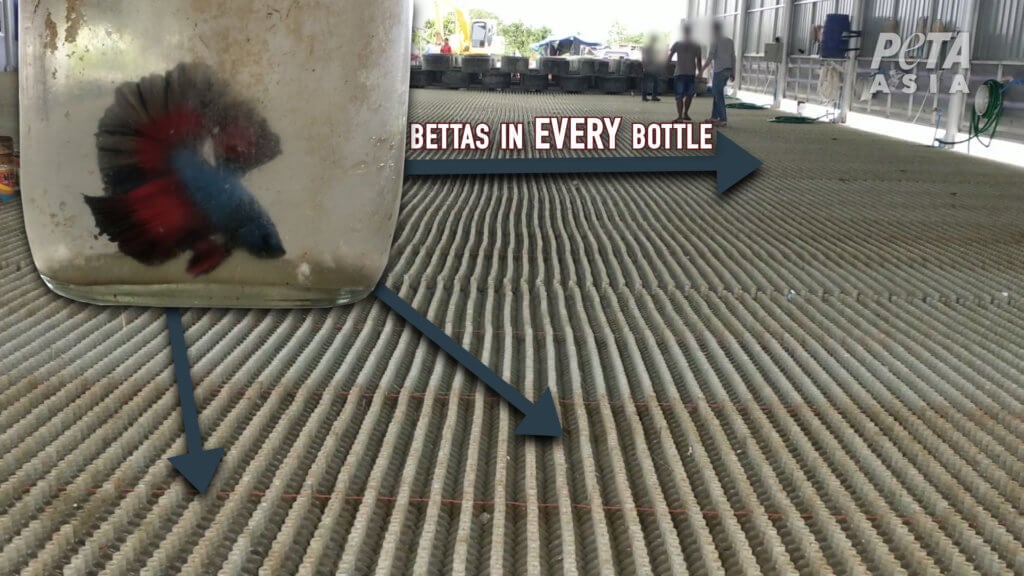
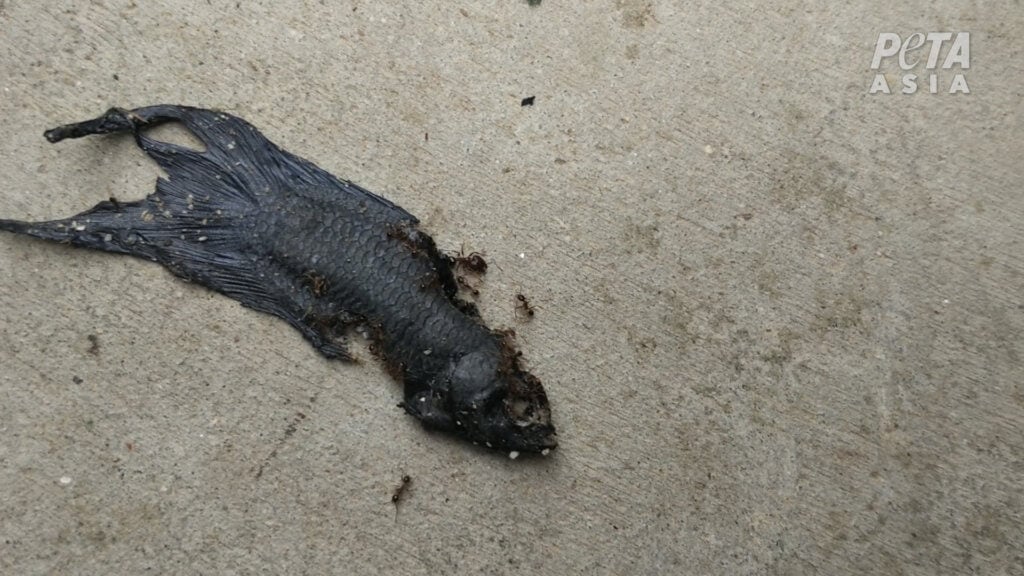
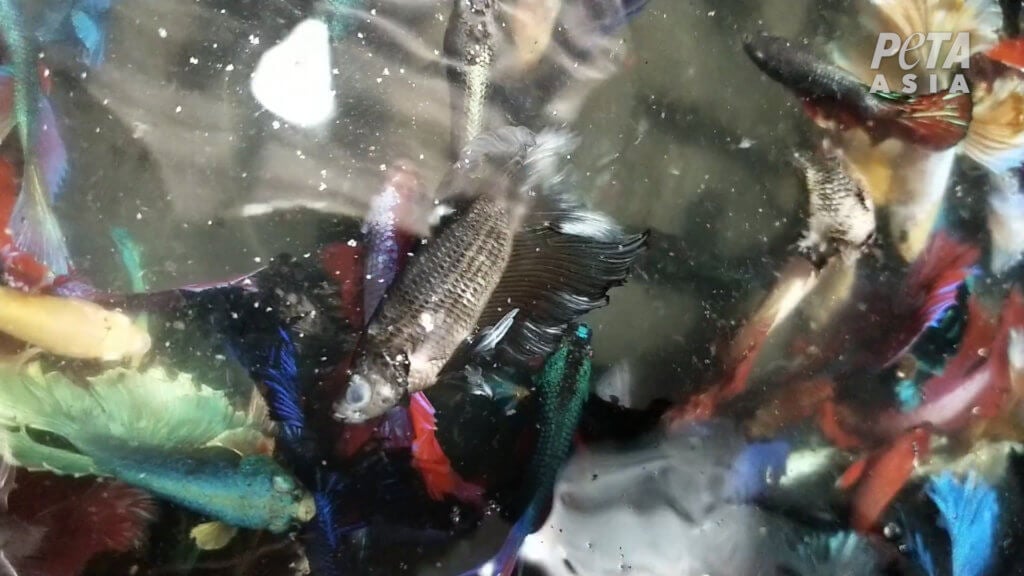
Starved and Doped: Bettas' Harrowing Journey From Thailand
When betta fish are shipped to countries around the world, they’re commonly packed without any food. The journey can take several days. A worker told the eyewitness that a tranquilizer is added to the water so the fish won’t eat their own tails.
Many bettas die before reaching their intended destination. According to one worker, a company that supplies Petco ships 100,000 bettas per week to the U.S., and up to 1,000 of them die before they reach distributors.

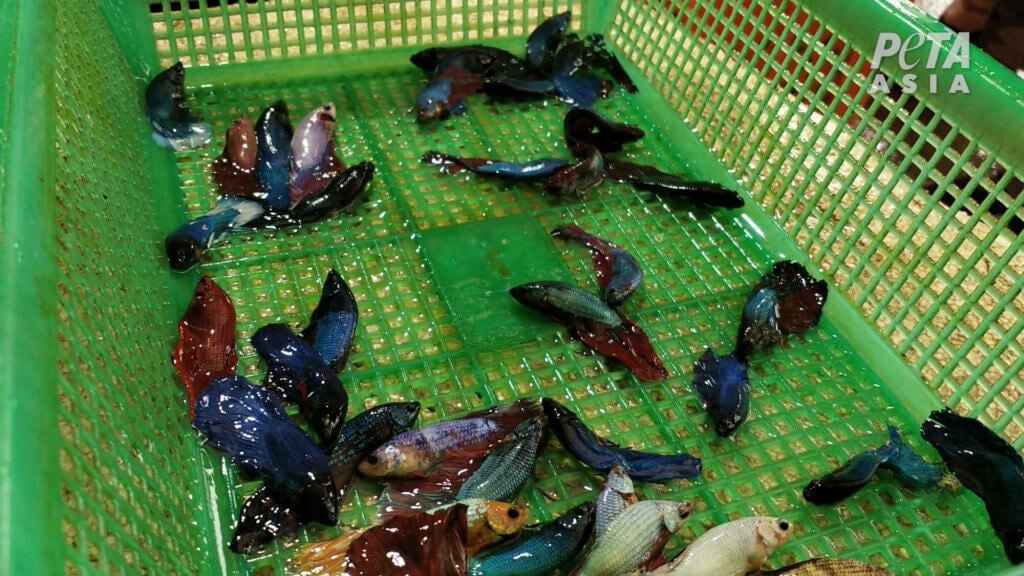
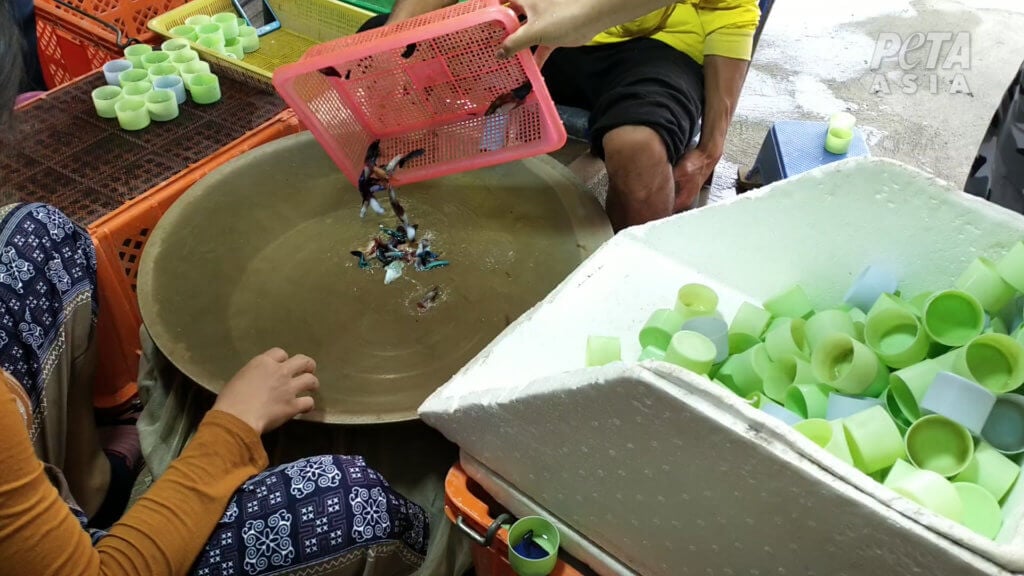
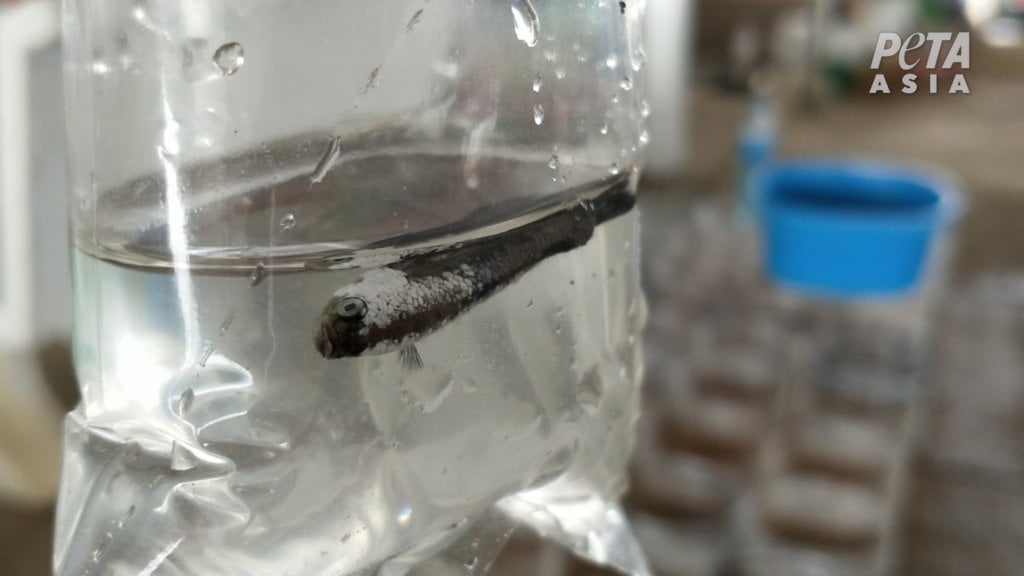
Sick, Dying Fish Found at Petco Stores
PETA’s previous investigations of the betta trade have uncovered rampant neglect. At Petco stores around the U.S., dead and dying betta fish were found floating in tiny cups of contaminated water, and some were left to suffer from painful or debilitating health conditions. Multiple Petco employees admitted that the process of transporting bettas to stores is so stressful that the fish often get sick and die shortly after their arrival, noting that the small cups they’re confined to makes them susceptible to health problems.
Bettas are vibrant, complex animals with specific needs. To be healthy, each one needs 5-10 gallons of clean, filtered, flowing water.
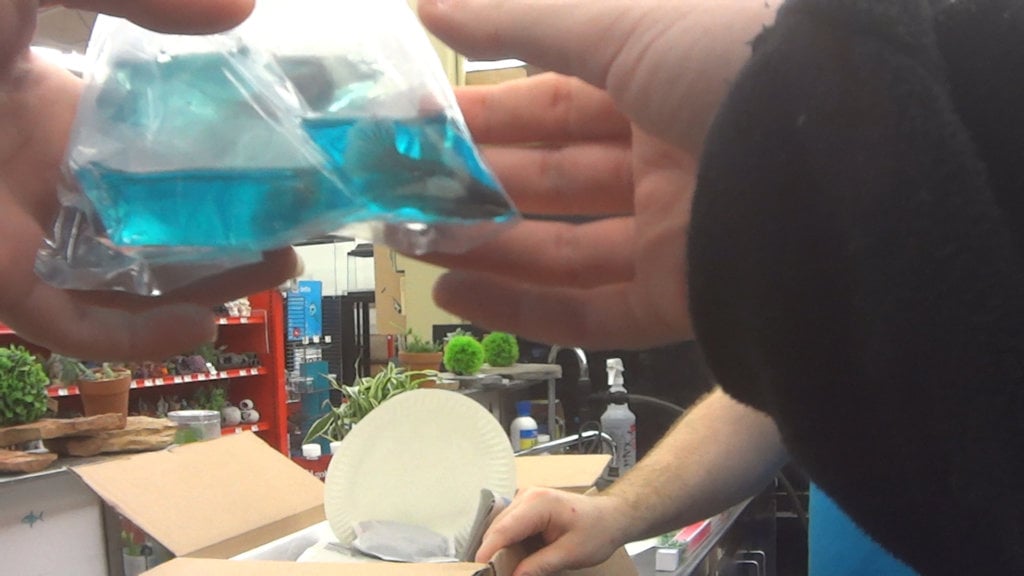
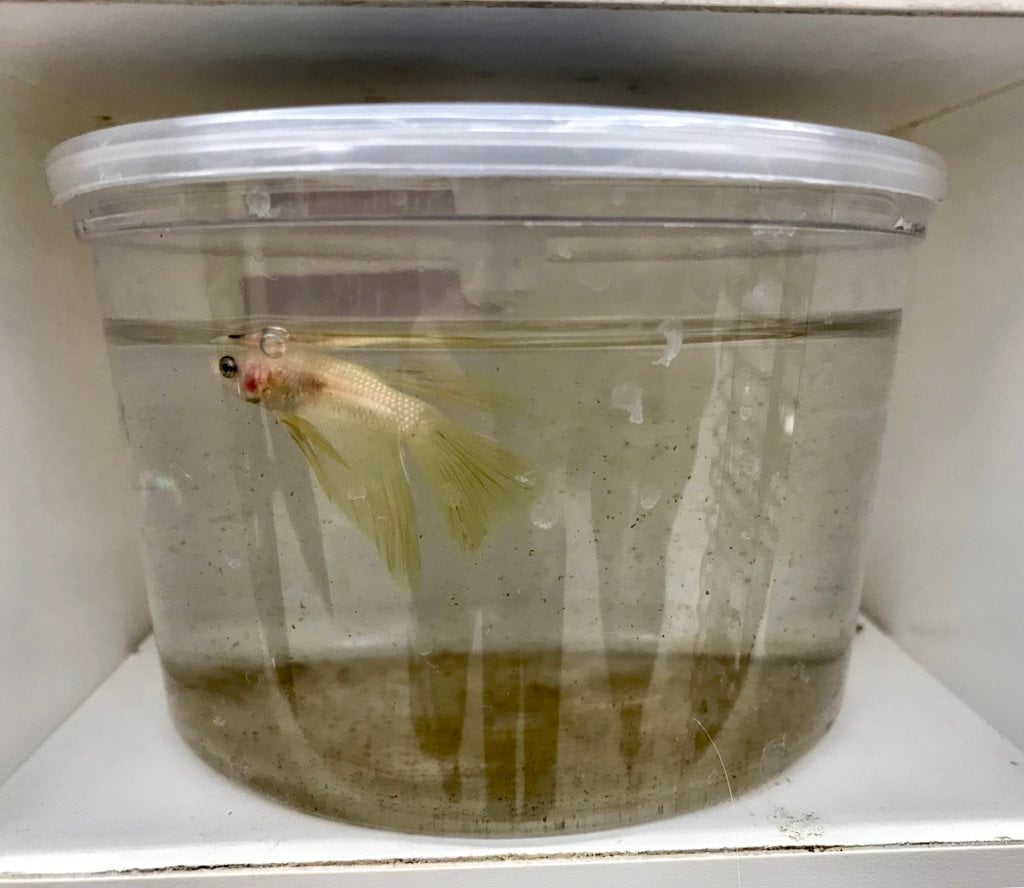
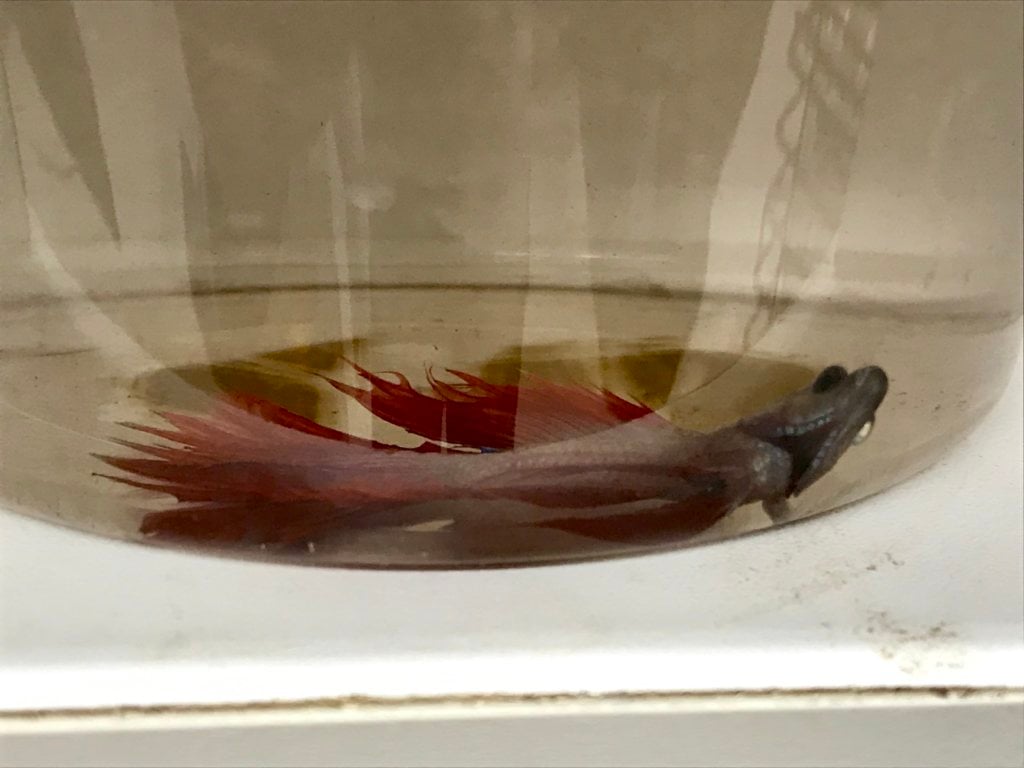
Bettas Are Suffering in the Pet Trade. Take Action!
The trade in betta fish is causing suffering on a massive scale. Please don’t buy betta fish or support pet stores that sell them.
Do More: Urge Petco to end its sales of betta fish immediately!
